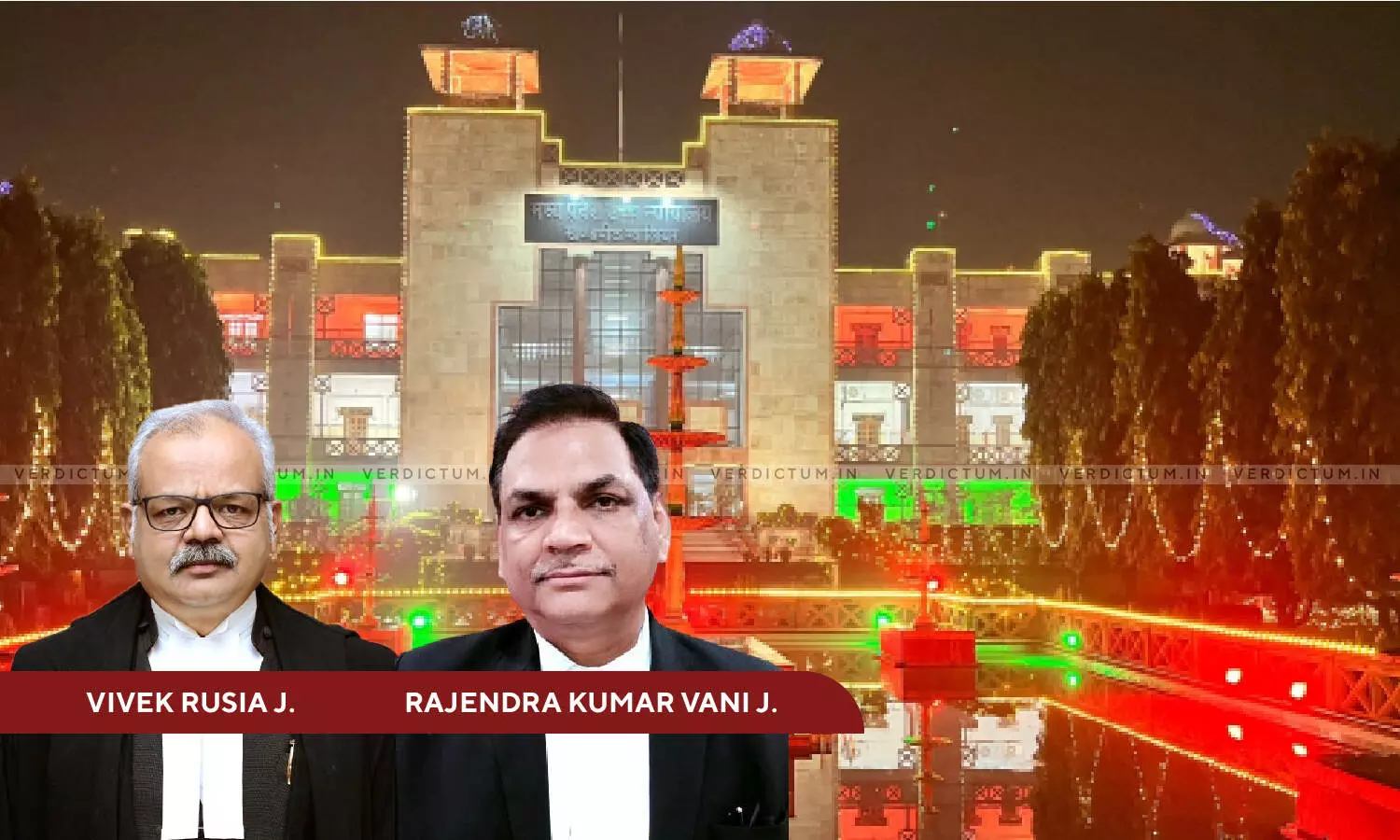
Conviction Of Husband In Murder Case Amounts To Mental Cruelty & Situational Desertion Of Wife: Madhya Pradesh HC Grants Divorce To Wife
 |
|The Madhya Pradesh High Court has granted divorce to a woman whose husband was convicted and sentenced to life imprisonment for the murder of his own father over a property dispute.
The Division Bench of Justice Vivek Rusia and Justice Rajendra Kumar Vani ruled that the husband's conviction under Section 302 of the Indian Penal Code (IPC) amounted to mental cruelty towards the wife, thereby entitling her to a divorce.
The Bench stated that although under the Hindu Marriage Act there is no such provision for the grant of divorce on account of conviction of wife or husband, as the case may be, for life imprisonment, there is the provision for the grant of divorce on the ground of mental cruelty. "...the conviction of the husband under Section 302 of IPC and sentence of life imprisonment amounts to mental cruelty towards the wife, which entails her getting the divorce from her husband," it said.
The couple in question was married in 2011 and has a daughter. In 2020, the wife filed for divorce in a family court in Gwalior, citing her husband's 2019 murder conviction. She also alleged that her husband exhibited cruel and aggressive behavior towards her. However, the Family Court rejected her plea, ruling that a criminal conviction alone did not constitute cruelty and finding no evidence of direct cruelty by the husband.
On appeal, the Court examined the circumstances, noting that the husband faced two criminal cases, including the murder conviction for which he was sentenced to life imprisonment. "Although there is provision for releasing him on bail by way of suspension of sentence, it would be very difficult for a wife to live with a person who is facing trial under Section 307 of the IPC and has been convicted under Section 302 of the IPC for committing the murder of his father. It would certainly cause mental cruelty to her," the Court opined.
The Division Bench further reasoned that no wife could be expected to maintain a matrimonial relationship with someone who exhibited such extreme and violent behavior, particularly given the nature of the crime—killing his own father over a property dispute.
In addition to the wife's mental anguish, the Court considered the implications for the couple's daughter. "Even otherwise, it is not a case of a wife living with a convicted husband, but it would not be better for her daughter to live with her father, who has a criminal background. If she lives with the respondent at the age of six years, it will not be advisable for her mental wellbeing," the Court added.
The Bench said, "Therefore, the learned Family Court has wrongly dismissed the case relying on the condition prior to the registration of a criminal case and conviction when a wife cannot live with her husband in future because of the uncertainty of releasing him on bail."
The Court concluded that the family court had erred in dismissing the wife's plea for divorce. It noted that the husband had been in custody since 2017, resulting in a de facto desertion of more than two years, thus providing another ground for divorce. "Therefore, this is the situational desertion of wife by the respondent/husband. On this ground also, she is entitled for divorce," the Court held.
Emphasizing the continuous fear and insecurity the wife would face due to her husband's criminal history, the Court set aside the family court's ruling and dissolved the marriage. "As held above, because of the aggressive nature of the respondent/husband, while facing trial under Section 307 of the IPC and thereafter he murdered his father, now he is convicted under Section 302 of the IPC. Therefore, it would cause constant fear about the safety of herself and her minor daughter in the mind while living with him," the Court noted.
"This First Appeal is allowed. The impugned judgment and decree dt. 29.11.2023 passed by the learned Family Court is set aside. The marriage between the appellant/wife and respondent/husband solemnized on 21.11.2011 is dissolved," the Court ordered.
Cause Title: X v. Y
Appearance:-
Appellant: Advocate Suresh Agrawal
Respondent: Advocate Rajmani Bansal
Click here to read/download the Order